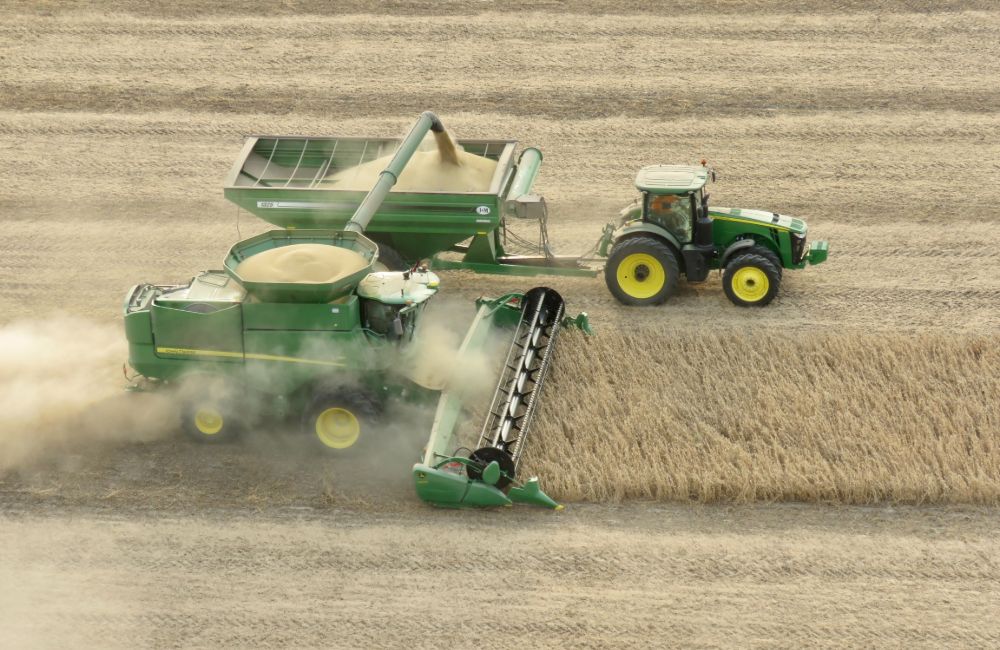 On May 10th, the Senate Appropriations Committee Subcommittee on Agriculture, Rural Development, Food and Drug Administration, and Related Agencies held a hearing to review the FY 2023 budget request for the U.S. Department of Agriculture (USDA). The sole witness in the hearing was USDA Secretary Tom Vilsack.
On May 10th, the Senate Appropriations Committee Subcommittee on Agriculture, Rural Development, Food and Drug Administration, and Related Agencies held a hearing to review the FY 2023 budget request for the U.S. Department of Agriculture (USDA). The sole witness in the hearing was USDA Secretary Tom Vilsack.
Below are some key takeaways from the hearing prepared by Delta Strategy Group.
Committee Chair Tammy Baldwin (D-WI):
- I am pleased that the USDA’s request will continue to invest money in climate resilience and supporting rural economies. I am particularly pleased to see that USDA will dedicate funds to socially and geographically disadvantaged farmers.
- USDA must have the funds it requires to invest in broadband internet services for rural communities. This should be a top priority in this administration to ensure that all Americans have access to the tools they require to succeed.
- USDA requires additional staffing to carry out its mission. There must be sufficient resources and staff members so that rural communities have access to the support they need.
Committee Ranking Member John Hoeven (R-ND)
- Inflation and rising input costs are leading to real struggles for both ag producers and consumers. With Russia’s invasion of Ukraine, it is important to have sufficient resiliency and efficiency in our food supply chains. We have to find ways to produce more energy in this country and address the supply chain issues. Not only an increase in fuel price for their tractors, but farmers also see an increase in the price of fertilizer and their other inputs. We need to ensure that funding from programs like the Livestock Emergency Relief and WHIP+ get out to farmers in a timely fashion.
Tom Vilsack, Secretary, USDA
- USDA is responsible for thousands of rural counties across the U.S. and between $30 and $40 billion in loans and grants. To support these responsibilities, USDA needs sufficient staffing, but we are currently short 500 workers. Funding for ag research has also stalled in recent years. We need to continue to support innovation in biotechnology. Recent events have shown us how significant our ag supply chains are, and this needs to be reflected in the resources that USDA has to do its job. More than 60 thousand farmers are on the brink of defaulting on USDA loans, and we need to have the appropriate resources to help them.
- With $8.4 million, the NRCS is working with the local sponsors of the projects that were identified to work through the implementation plan. The state of Mississippi was the recipient of $47.8 million of additional resources under the bipartisan infrastructure law of the $500 million that was allocated for Watershed and Flood Prevention Operations. NRCS is working on a variety of projects in Mississippi. I think you are going to see significant activity in Mississippi because of the money and resources that have been provided through the appropriations and infrastructural process. We are confident insofar as there is enough staff on the ground as we continue to increase staffing levels.
- We are seeing a global food security crisis as a result of Russia’s invasion of Ukraine. I also have concerns over the impact of climate events on food security. That is a key reason for us to introduce more climate-smart ag and forestry initiatives. We are also investigating ways to increase double-cropping opportunities and crop insurance.
- We are continuing to work to produce more fertilizer domestically to deal with international shortages and high prices. We are also working on developing ag practices that would require reduced fertilizer use. We are considering a split nitrogen policy for crop insurance that would cover crop losses if farmers decide to use half as much nitrogen as they typically do. We are also investigating fertilizer prices for price manipulation.
- Our budget calls for an increase in funding for the Packers and Stockyards Division. We plan to introduce multiple rules in this area in the near future to strengthen oversight and enforcement capabilities. I have serious concerns regarding concentration and consolidation in the meatpacking industry.
